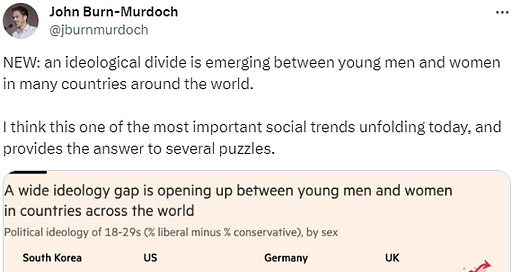This week, John Burn-Murdoch, a data reporter at the Financial Times, shared a graph seemingly showing a growing ideological gap between men and women. The image went viral on the site formerly known as Twitter, with a lot of people hand-wringing over the growing alienation of men.
It’s worth noting that other data scientists have pointed out that the id…



